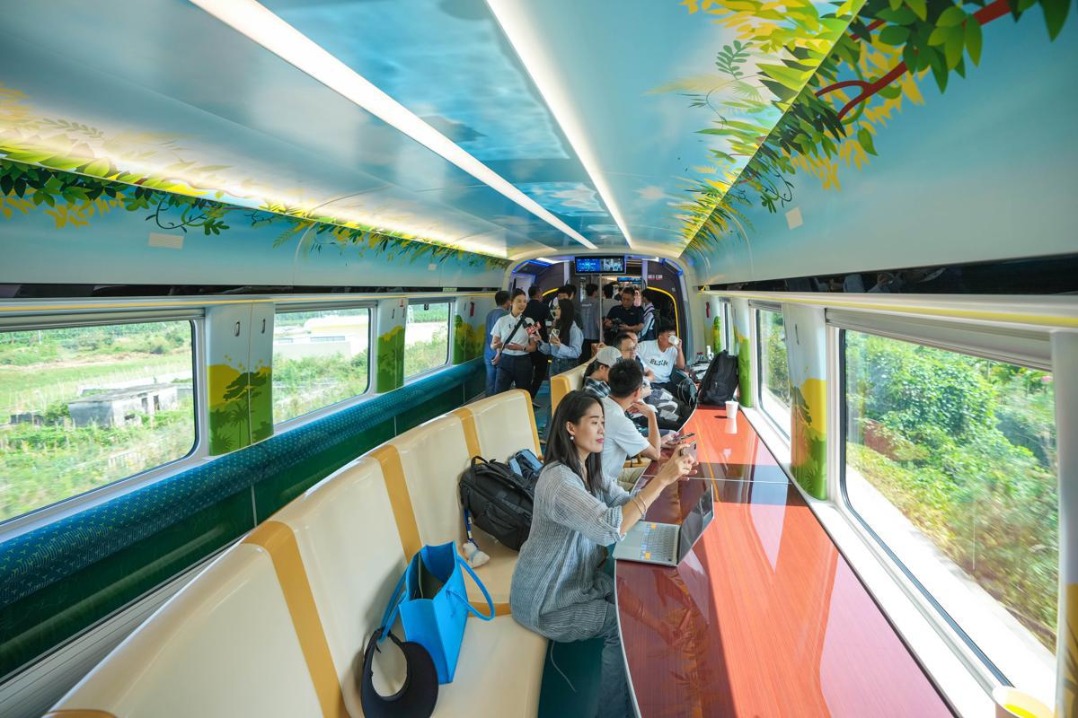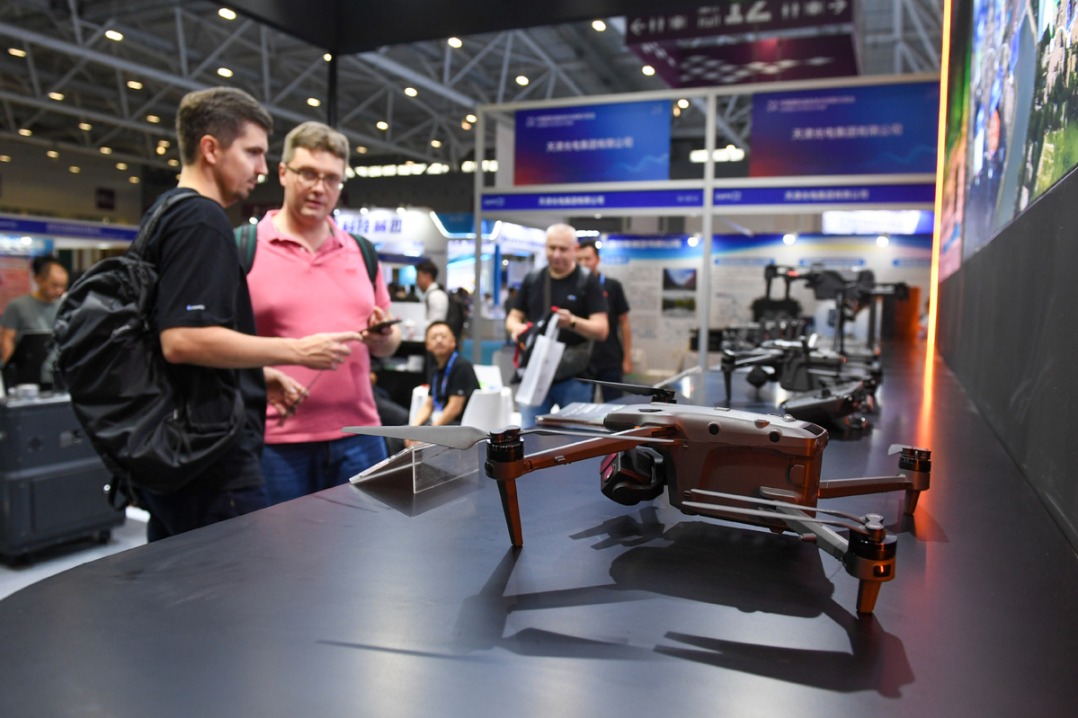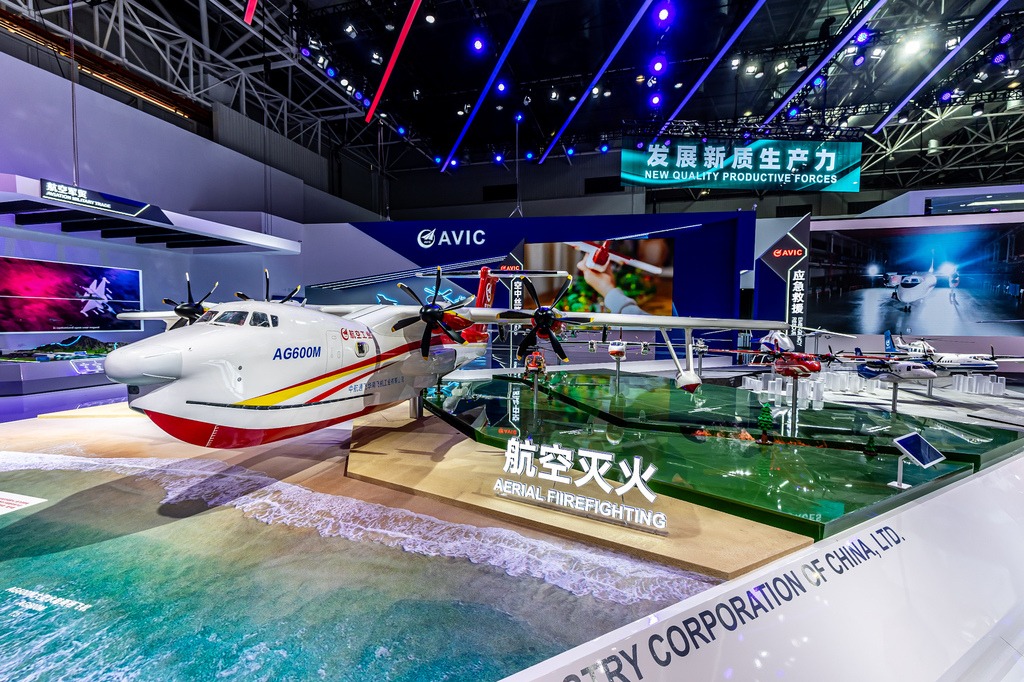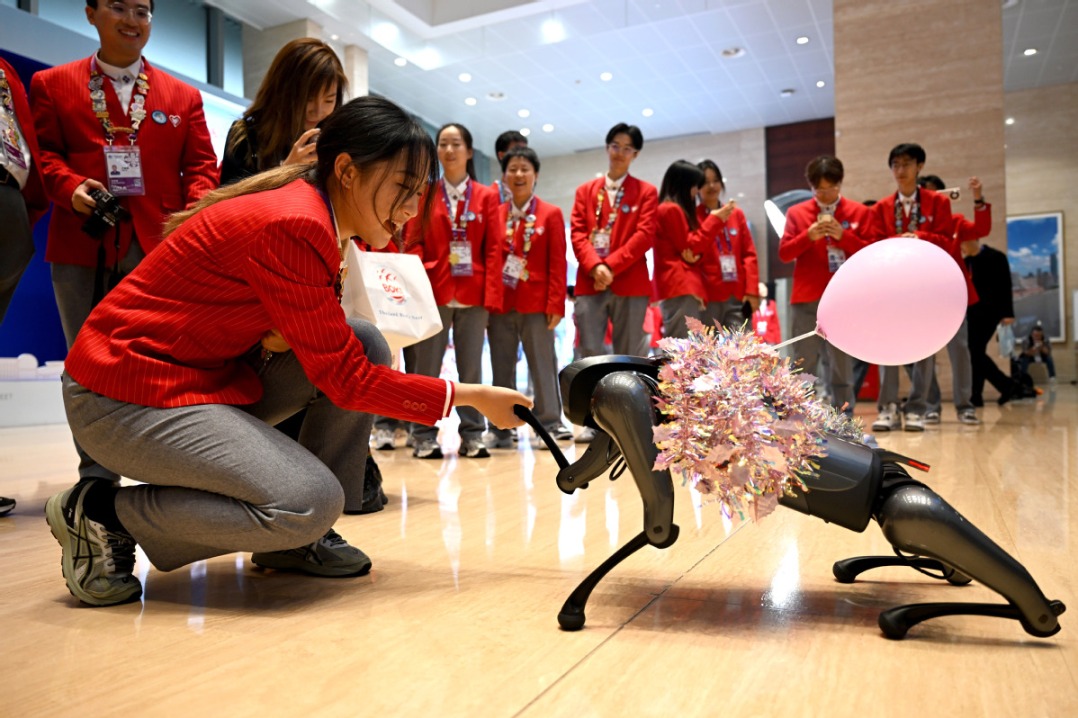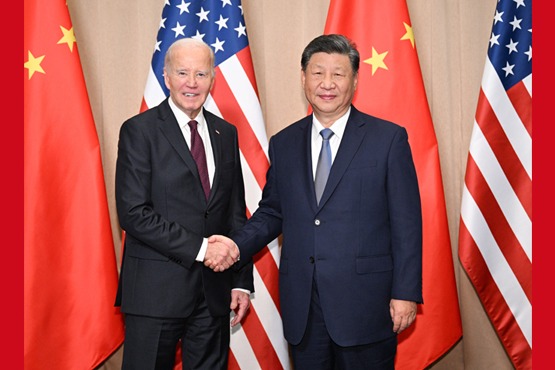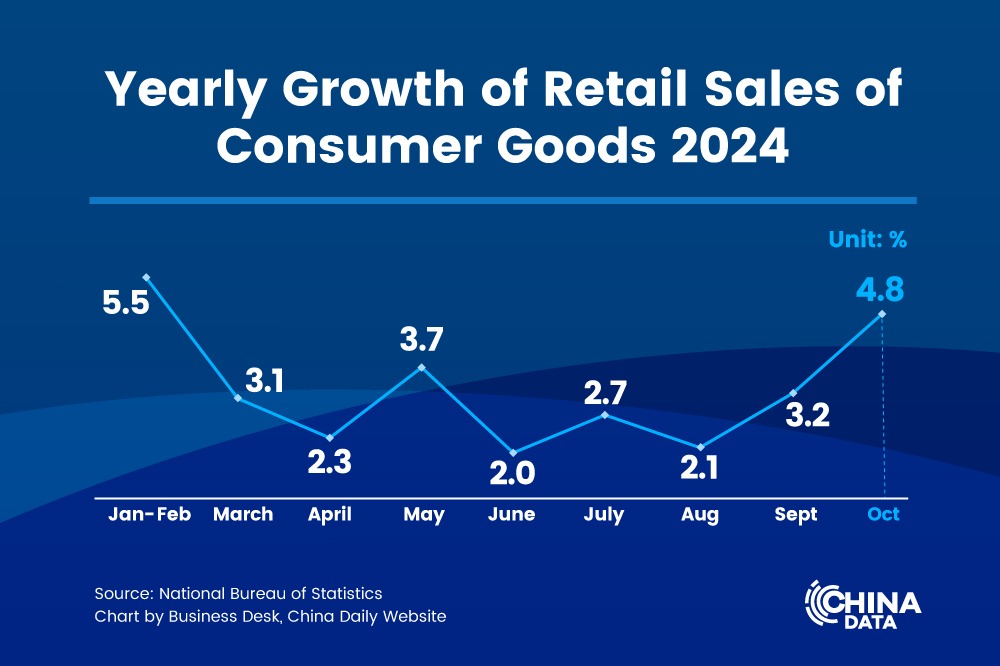Michelin's 'tireless' efforts pay off
French firm eyes explosive growth in China's new energy auto sector


With China entering a new era of green and innovation-led growth, Michelin Group, a French tire and mobility company, will allocate more resources to cut carbon emissions in the tire production process and introduce new polymer products in China, said a senior executive.
These initiatives encompass upgrading and renovating manufacturing equipment, developing advanced, eco-friendly resin adhesives and other polymer-based products that promote low-carbon mobility and align with China's commitments to green growth.
"We have already made rapid progress, with nearly one-third of our factories' electricity now powered by solar energy in China," said Matthew Ye, CEO and president of Michelin China and Mongolia, noting that the group has also converted much of its steam vulcanization equipment to electric vulcanization versions as demand for overall energy increases.
The group plans to increase passenger car tire capacity at its factories in Shanghai and Shenyang, Liaoning province, to meet soaring long-term market demand.
Speaking at the company's booth during the seventh China International Import Expo in Shanghai earlier this month, Ye said this move has been prompted by the enthusiasm shown by Chinese automakers and technology companies in adopting new technologies, which has opened up numerous opportunities and resulted in a significant increase in the use of electric vehicles and new materials.
That sentiment is in line with the latest data. China's auto sales reached 24.62 million units between January and October this year, an increase of 2.7 percent year-on-year. In the meantime, the country's exports of new energy vehicles totaled 1.06 million units, growing 6.3 percent on a yearly basis, said the China Association of Automobile Manufacturers.
Highlighting that the auto market in China has changed significantly, Ye said that Michelin did not expect domestic car brand sales to rise so quickly this year, nearly surpassing imported brands.
"This means our partners now include not only the luxury Western brands we worked with in the past, but also many new players and traditional Chinese automakers. We have found that collaborating with them requires even faster response times and higher technical standards than before."
The French group created a booth with the theme of "Michelin Adventurer" this year, that featured the Chinese and Asian premieres of numerous new tire products during the seventh CIIE.
This year marked Michelin's fourth participation in the CIIE and the 35th anniversary of Michelin's presence in China. The company said that it has created and experienced countless milestones, which not only include numerous technological breakthroughs and product innovations, but also bringing new experiences that change people's lives.
"The growth rate of NEVs has surpassed our expectations in China. We initially projected that reaching a 30 percent market penetration would mark a long-term stable phase. However, in certain months this year, it has already neared 50 percent, with the trend continuing to rise," said Ye.
China's automotive industry, especially in the NEV segment, has fueled remarkable growth through continuous technological innovation and active participation in global division of labor and cooperation. In 2023, EV sales in China accounted for 62 percent of the global total, data from the China Passenger Car Association showed.
He said such an environment places substantial demands on tire performance. Relying on a single tire model for NEVs is no longer sufficient, as consumers find it challenging to distinguish the quality of tires specifically designed for such vehicles.
"With nearly 700 car tire products in China, we must convert the demand for each product into an effective production plan. As a result, digitalization has become a vital investment focus for the future," Ye said.
As China develops new quality productive forces, Ye said that innovative technologies are driving the transformation toward digitization and green, low-carbon development, which have provided companies like Michelin with broader development opportunities.
New quality productive forces refer to advanced productivity freed from traditional economic growth modes and productivity development paths. It features high technology, high efficiency and high quality, and is in line with the new development philosophy.
Supported by 132,500 employees and 131 production facilities across the world, Michelin's sales revenue amounted to 28.34 billion euros ($30.13 billion) in 2023, according to its financial report.
With the structure of foreign investment continuing to be optimized, China saw its high-tech manufacturing sector utilize 77.12 billion yuan ($10.66 billion) in foreign direct investment in the first three quarters, accounting for 12 percent of the national total, said the Ministry of Commerce. That represents an increase of 1.5 percentage points from the same period last year.
China's complete removal of market access restrictions for foreign investors in the manufacturing sector this year, alongside its innovation capability and business model transformation, will continue to encourage global companies to invest in new innovation centers, expand production capacities and advance digital transformation initiatives within the country, said Bai Ming, a member of the Academic Degree Committee at the Chinese Academy of International Trade and Economic Cooperation in Beijing.
In addition to producing more tire products in China, the Michelin Guide, a global provider of restaurant and hotel information and ratings, will announce its first provincial restaurant selection for Fujian province in December, followed by another one for Jiangsu province in the first quarter of next year.
The group plans to launch the Michelin Guide in nearly 10 provinces and municipalities across China over the next three years.
A report by market consultancy iiMedia Research indicates that China's catering industry market is growing steadily. With ongoing consumption promotion policies across the country, demand in the sector is continually being stimulated, and is projected to reach 5.7 trillion yuan by 2025.
National catering revenue reached 2.6 trillion yuan in the first half, up 7.9 percent year-on-year, exceeding the overall growth rate of retail sales of consumer goods for the same period, said the National Bureau of Statistics.
Noting that China has transitioned from prioritizing the scale and speed of foreign investment to emphasizing quality in its approach, Wang Xiaosong, a professor at the School of Economics at Renmin University of China in Beijing, said foreign companies have ample opportunities to leverage the expansion of China's services sector, green transformation and high-end manufacturing.
For the next step, China will continue to harness its vast market advantages to foster exchanges and collaboration between Chinese and foreign enterprises, promoting manufacturing and services to become more high-end, intelligent and environmentally friendly, said Wang.
















